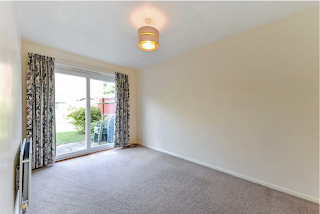





.png)






By looking at a monthly breakdown of property sales in the UK for 2022 & 2023, we can determine whether this is in fact true and which months are actually busiest for estate agents.
Here’s the month-by-month property sales in the UK for 2022 & 2023:
Bear in mind though that these figures (from Land Registry) are when a property sale is completed, rather than when it is first agreed between buyer and seller. With the legal process normally taking several months, we can conclude that the highest number of sales are actually agreed around May / June.
Having looked at the figures across a number of years, I can confirm that the above pattern is typical of how the market flows throughout the year. Things start off slow and build momentum as the year progresses, peaking in late Summer, before tailing off again into the darker, colder months.
In fact, the number of sales roughly follows the amount of daylight we have, albeit lagging this by a couple of months i.e. there are more viewings and sales agreed when there are more daylight hours, with a couple of months for the paperwork to go through before the transaction completes and shows up as a ‘sale’ on the Land Registry. The only outlier to this is March, which can be explained as a result of more people suddenly looking for a fresh start in January.
As a side note, the totals above show there were 726,940 sales in the whole of 2023, which was a massive 39% lower than in 2022, when 1,008,616 properties were sold in the UK. Worryingly, things have slowed down even further at the start of 2024, with there being 24% fewer sales registered in the first third of the year compared to the same period twelve months prior.
Looking back at the chart though, the volume of sales is actually quite steady throughout the year, rather than having wild ups and downs like some people think. What this ultimately means is that there is not really a ‘best’ time to sell; the best time is surely when it fits your circumstances. So, you should be content to know that, if correctly priced, your property will sell regardless of when it is listed throughout the year.


